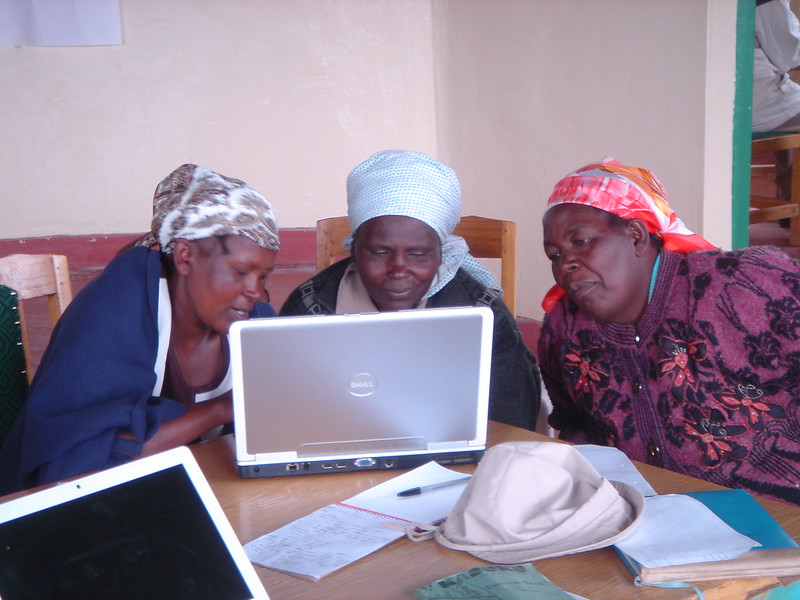How LakeHub is Bridging the Gender Digital Divide in Kenya

In March 2022, LakeHub, a “Kenyan tech innovation hub,” partnered with the United Nations Development Programme (UNDP) to equip 300 Kenyan girls with “digital literacy and technical skills.” As the Kenyan government has been making strong efforts to improve digital literacy, this partnership will be useful in bridging the gender digital divide in Kenya.
Digital Literacy in Kenya
In recent years, Kenya has made efforts to grow its digital economy and empower Kenyans with digital literacy skills. For example, in 2016, Kenya launched its Digital Literacy Programme, an initiative dedicated to providing digital devices to primary school children and training educators to give lessons through “digital learning content.”
These devices are “pre-loaded with interactive digital content in Math, English, Science and Kiswahili” in order to facilitate learning. Within the first phase of the initiative, the program distributed more than one million devices to more than “23,000 public primary schools” across Kenya.
Additionally, approximately 81,000 Kenyan educators received through the program. With such progress, the Digital Literacy Programme began its second phase in July 2019.
The Gender Digital Divide in Kenya
Despite the commendable strides of the Kenyan government in promoting digital literacy, there are concerns about equal access to digital devices and knowledge, particularly in the area of gender inclusivity. As the GSMA Mobile Gender Gap Report of 2019 reports, “women in Kenya are 39% less likely than men to have access to mobile internet” and “are also 23% less likely to own a smartphone.”
Moreover, this gender digital divide appears to be growing with the gender gap in mobile internet use increasing from 34% in 2019 to 42% in 2020.
A 2021 study titled “Kenya’s Digital Economy: A People’s Perspective,” also found that only “35% of women use advanced digital services compared to 54% of men.” The factors that contribute to this gender digital divide in Kenya include “discrimination, harmful social norms, the education divide, geography and lack of motivation.”
LakeHub’s Partnership with the United Nations
LakeHub is one organization that is striving to close the gender digital divide in Kenya. In June 2020, LakeHub launched its FemiDev program which aims to “bridge the gender gap within the digital sphere.” The program provides incentives such as full scholarships to females to learn skills in “back-end web development, design thinking, entrepreneurship[and] graphic design,” among many other skills.
LakeHub’s partnership with the United Nations forms part of its FemiDev program. During the 12-month training program, participants receive “laptops and internet access in order to attend in-person training across three counties in Kenya — Kisumu, Busia and Migori.”
The program recruits participants through an online application that is released every three months “on all social media platforms.” So far, the program has “sponsored 200 girls between the ages of 18 to 35” with 80% of them achieving “relevant job placement and paid internships, both in the private and public sectors.”
The Importance of Gender Inclusivity in Digital Transformation
With the onset of the COVID-19 pandemic, the importance of digital technology and connectivity has become even greater. Technology use has become the new normal with digital platforms becoming particularly handy in “facilitating remote learning, work-from-home, business and service provisions such as health, banking, market access and entertainment.”
Thus, for many female workers, the lack of digital literacy skills, to understand and gain access to new markets has led to a loss of income and livelihood. With the majority of Kenyan women working in manual jobs, characterized by “low pay and poor working conditions,” the restrictions and shutdowns from the pandemic hit female-dominated sectors hardest, meaning that women began losing their jobs first.
In addition, the 2021 Finance Corporation report indicates that 230 million employment opportunities in the African region “will require digital skills by 2030.” Therefore, equipping Kenyan women with digital literacy skills will grant them access to new employment opportunities and increase overall gender equality in Kenya.
While there is still work to do to fully close the digital gender divide in Kenya, initiatives like the FemiDev program lead the way to achieving gender equality in the digital arena.
– Divine Adeniyi
Photo: Flickr
